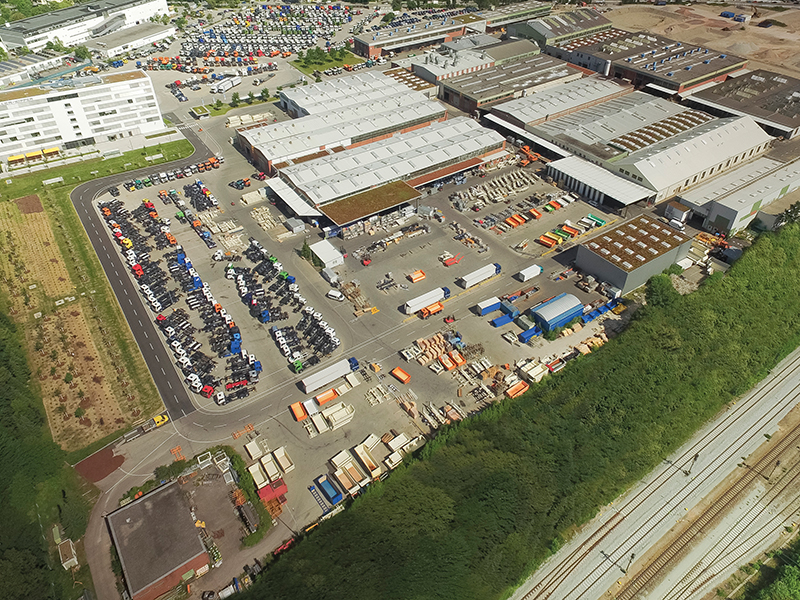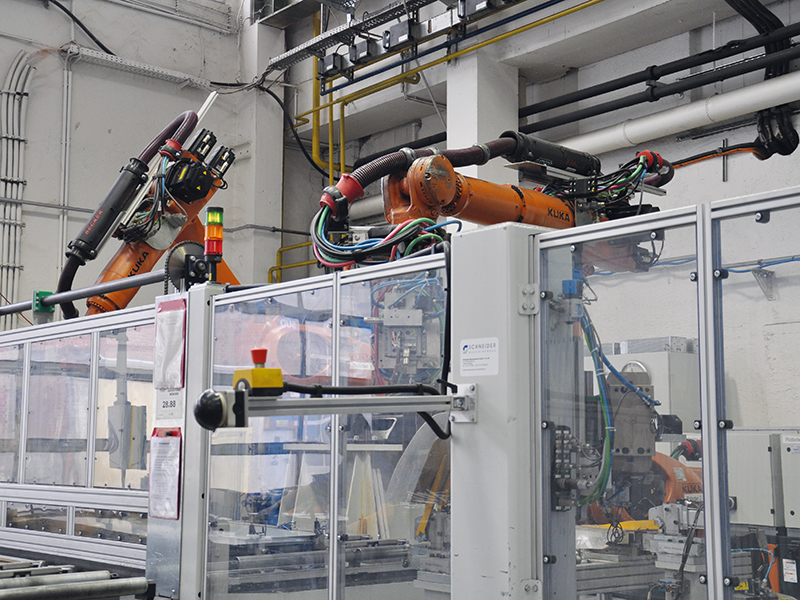Digitalisation is fun!
SME component manufacturers in the lift sector should grapple with the subject of digitalisation as a matter of urgency, according to Wolfgang Nothaft.
The managing director of Meiller-Aufzugtüren warns, “If they don’t take part in this development now, they’ll soon be engaged in a game of catch-up.”
What is the state of digitalisation in the lift sector?
Wolfgang Nothaft: Very different: the major players in the lift sector established cooperative ventures to develop solutions for the digitalisation of their companies with the major players in IT some time ago. By contrast, relatively little has happened among the SMEs. But as component suppliers, we have to make our contribution to becoming and remaining competitive vis-à-vis the conglomerates. At the moment, most component manufacturers are missing out on digitalisation.
Why are SMEs are lagging behind?
Nothaft: Not an easy question. It’s an unbelievably dynamic development; the jumps don’t happen in years, but rather in months. This is a great challenge for rather a conservative sector.
Meiller began tackling the subject about three years ago. Why?
Nothaft: We’re convinced that digitalisation will be an important part of future lifts. This is why our task as component manufacturer is to make our contribution to this development. We simply believe that sooner or later we’ll become interchangeable otherwise. Our goal is to make lift doors intelligent. As a result of digitalisation, they not only generate data, but knowledge too. This knowledge will become the engine for product development and business ideas.
What benefits does digitalisation otherwise provide the company with?
Nothaft: If companies don’t take part in this development now, they’ll soon be engaged in a game of catch-up. But it’s an amazingly exciting development, which for example will provide us with the opportunity to support our customers quite differently than previously. For example, for a lot of work we no longer need to be on the spot, but instead we give our customers directions from here. Moreover, we can launch completely new products and conquer completely new markets – for example, in the Far East. Moreover, as a result of digitalisation, we get to do with people who think very differently. If you allow that and give them the corresponding room for manoeuvre, you can come up with completely new ideas. Today, we’re handling subjects that we hadn’t even thought of three years ago. Incidentally, that’s also tremendous fun!
The obvious question is then how SMEs can acquire the coveted IT experts for their businesses?
Nothaft: It all begins with digitalisation being important to them and being prepared to invest money in it. Good people don’t come cheap. Of course, you also need a little luck. We’ve brought in several external people, but who fit in with us and who are also from the sector. We’ve found some people internally who are crazy about the subject and also enjoy it. But you have to give both spaces to develop. This has worked out very well for us.
Why should the sector bother about it at all, it’s doing very well, isn’t it?
Nothaft: We do in fact have several years under our belt of in part double-digit growth rates. The industry is indeed doing well, but we can’t assume this will always be the case. This is because once the boom is over, it’ll once again all be about qualifications and costs and the question will be: can my company keep up? And digitalisation will play an important role in that. Mechanical systems without their own intelligence will be unable to take part in this development.
You are a relatively big SME with a big parent company behind you. How is a small company to manage this?
Nothaft: Good question! I don’t have an easy answer to that; it will definitely be more difficult than at Meiller. But doing nothing won’t help either. And to put it philosophically: while some are hiding behind high walls to protect themselves from the winds of digitalisation change, others are erecting windmills.
What are the biggest challenges in this regard?
Nothaft: The biggest challenges are in the past, in the way companies used to work. We are a mechanical company; our product life and development cycles are completely different from those in the digital world. This involves two different worlds, two corporate cultures, two speeds colliding that are initially completely incompatible with each other. Without clever handling, the digitalisation experts will be completely frustrated and the analogue world employees completely out of their depth. Moreover, you always have to bear in mind that it’s a business and doesn’t become a hobby just because it’s incredibly dynamic and fun. On the other hand, digitalisation can also mitigate the lack of trained experts in the sector.
In what way?
Nothaft: You get data all the time on the condition of your lift; you don’t have to inspect it at fixed intervals anymore. Instead, you can maintain it as needed, which saves time and resources. On the other hand, you also have the opportunity for a division of labour: you have the knowledge about the lifts bundled centrally in your company and as a result, you need far less specialist knowledge for execution on the spot.
Meiller Aufzugtüren GMBH is an independent subsidiary of the F.X. Meiller KG and has been a component manufacturer for over 50 years. The registered office of the family company with 130 employees is in Munich; approximately 27 000 lift doors are manufactured annually, including about 5 000 glass doors. Its turnover is € 46 million annually. The managing directors are Wolfgang Nothaft and Jochen Strasser.
www.meiller-aufzugtueren.de



























Write a comment